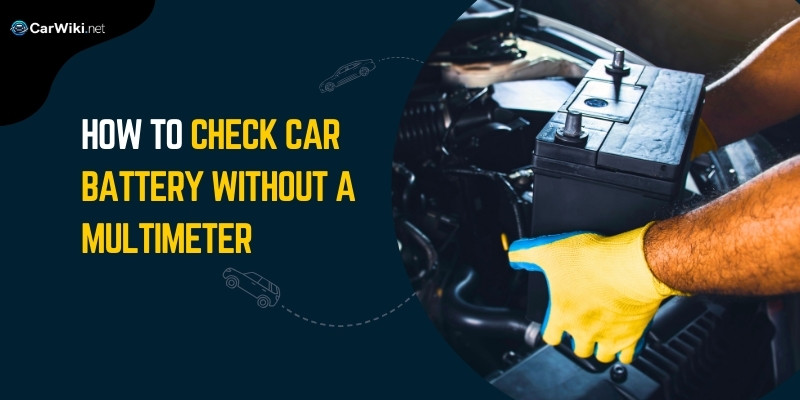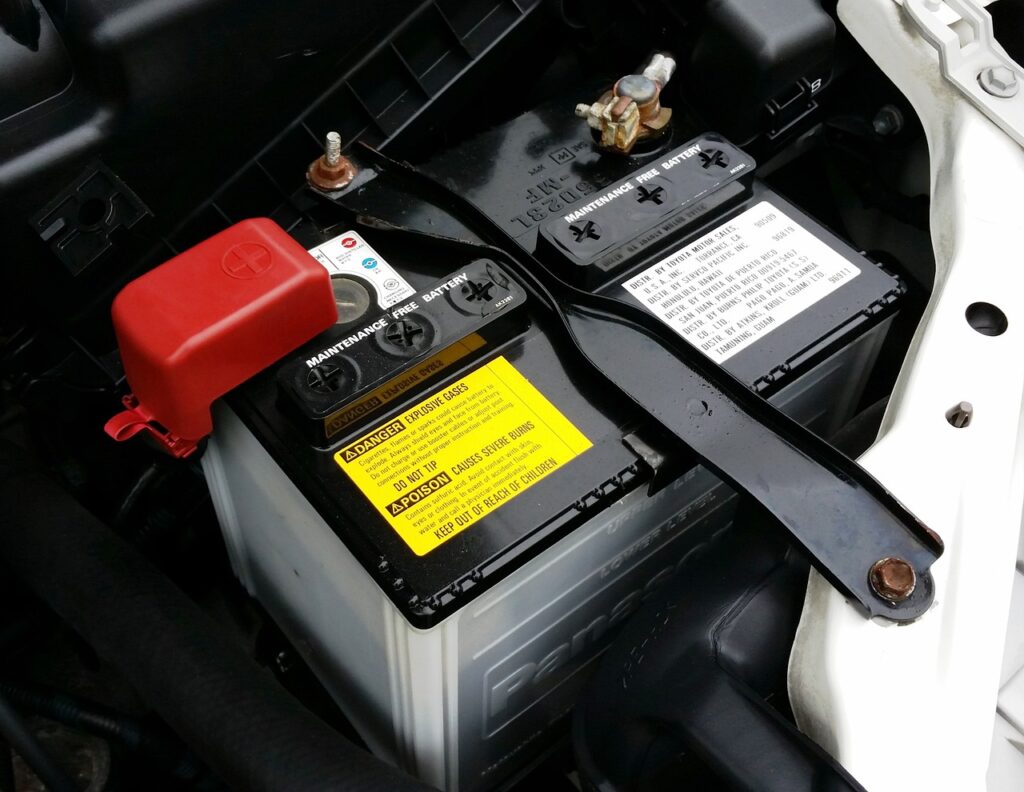How To Check Car Battery Health Without Multimeter (At Home)

Have you ever wondered how to check car battery health without multimeter?
You’re not alone.
A reliable and healthy battery is the heart of your car, keeping you on the move without a hitch.
In this easy-to-follow guide, we’re diving into some straightforward and effective ways to help you gauge your car battery’s condition right in your own garage or driveway, even if you’re not a tech whiz.
Extensive ways to check car battery health without a multimeter at home:
1. Detailed Visual Inspection: Your First Line of Defense

Inspecting for Physical Damage
Begin with a thorough visual examination of the battery. Check for any signs of cracks, leaks, swelling, or deformation of the battery case, which are indicators of internal damage or a battery past its useful life.
Examining Battery Terminals
The terminals are prone to corrosion, which appears as a white, powdery substance. Corrosion can cause poor electrical connections, leading to starting issues.
It’s important to clean any corrosion using a mixture of baking soda and water and a wire brush. Remember to wear protective gloves and eyewear.
2. Understanding the Battery’s Age and Its Effects
Deciphering the Battery’s Lifespan
Most car batteries have a lifespan of 3 to 5 years, depending on usage and maintenance. A battery beyond this age is more prone to failure.
Locating the Manufacture Date
The battery’s manufacturing date, usually found on a sticker or embossed on the case, can guide you in determining its age.
Keep in mind that a battery over 5 years old may require more frequent monitoring.
3. Listening to Your Car’s Starting Behavior

Identifying Slow-Cranking Engine
Pay close attention when starting the car. A slow-cranking engine often indicates a weak battery.
Noting Inconsistent Starting
If your car sometimes takes longer to start, or the engine turns over several times before starting, it’s a potential sign of a battery losing its charge.
4. Conducting the Headlight Test

Assessing Headlights for Dimness
With the engine off, turn on your headlights. If they start bright but dim significantly within 10-15 minutes, it’s an indication that the battery may not be holding a charge well.
5. Dashboard Battery Warning Lights: Modern Cars’ Indicators
Understanding the Warning System
Many modern vehicles come with a battery warning light on the dashboard. This light is part of the car’s onboard diagnostic system and can indicate when your battery is not charging properly.
6. The Effects of Weather on Battery Performance

Cold Weather Impact
Batteries can struggle in cold weather, as the chemical reactions required to generate power are slower at lower temperatures.
If you’re experiencing starting problems in colder weather, it could be a sign your battery is weak.
Heat and Battery Wear
Conversely, hot weather can speed up battery wear and evaporation of the battery’s vital fluids, leading to decreased performance.
7. Checking for Electrical Issues
Interior Lights and Accessories
Observe if the interior lights dim or flicker, especially when starting the car or operating electrical accessories. This can be an indicator of a battery not holding enough charge.
Influence of Car Accessories
Frequent use of car accessories like air conditioning, radio, and phone chargers when the engine is off can drain the battery faster than usual.
A healthy battery should be able to handle these loads without significant discharge.
Conclusion: How To Check Car Battery Health Without Multimeter
Performing regular checks on your car battery’s health is key to avoiding unexpected automotive issues.
While a multimeter provides a more precise reading of battery health, these simple at-home methods can offer a good indication of your battery’s condition.
Remember, proactive maintenance is the best way to ensure your car is always ready to go.
Related articles:
- How to Replace BMW 3 Series Key Fob Battery (Guide)
- How to Fix Audi Q7 Start/Stop System Fault
- How to Repair Small Scratches on Your Car
How to Check Car Battery Health At Home – FAQ
It’s good practice to check your car battery at least twice a year, typically before summer and winter, as extreme temperatures can affect battery performance.
Yes, cold weather can reduce a battery’s capacity and make it harder for your car to start. Keeping your battery charged and checking it before winter can help.
A typical car battery lasts about 3-5 years, but this can vary based on usage, maintenance, and environmental factors.





